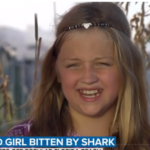






How Does it Feel to Raise Kids in Utah with its Free-Range Parenting Law?
What does it feel like to be a parent in Utah, the first (and so far only) state to pass the Free-Range Parenting law that says taking your eyes off your kids is not neglect?
Pretty great, according to a bunch of parents interviewed.
Utah’s law says that letting your kids play outside, walk to school, wait briefly in the car (under some circumstances) or come home with a latchkey is not neglect unless something else seriously bad is going on. The bill passed both houses unanimously last year and Gov. Gary Herbert signed it into law, saying, “We believe that parents know and love their children better than anybody.… Responsible parents should be able to let kids be kids without constantly looking over their shoulders for approval.”
Boston College Psychology Prof. Peter Gray, one of the three co-founders with me of Let Grow, wondered if that’s what actually happened. So he asked Utah parents to tell him whether the law was making a difference in their lives, and they said yes.
In his Psychology Today blog, Gray quoted a Utah mom who told him that this summer she let her son, age 12, get around by foot, bike and public transit. Thanks to the law, she felt confident that she didn’t have to worry about some worried onlooker calling the cops or child protective services on her.
Another parent, Brannon Burton, confessed that he was probably a bit of an overprotective dad. “I worried about letting [my children] walk to school, play at the park, or go trick or treating without an adult,” he told Gray. But as they got older, he also started to worry about something else – the fact that his kids didn’t seem that comfortable getting around the neighborhood, or solving problems on their own.
For this he blamed their dearth of real-world interactions. So, with the Free-Range Law at his back, he and his wife started letting their kids roam further afield and do more on their own. Now, he reports, they seem a lot more capable.
Finally, one Los Angeles-to-Utah transplant, Krista Whipple, told Gray that while Utah folks already seemed “fiercely protective” of their freedoms compared to her West Coast comrades, nonetheless, “it gives me peace of mind knowing that I can let my kids have some freedom and responsibility without the fear of the potential consequences I may have faced in California.”
And sure enough, when I reached out to Krista to hear a little more, she emailed back:
“My best friend in California just had the cops called on her last week for letting her baby stay asleep in the car with the windows down while she walked her son up to the door of the building where he is taking a class only a few yards away. They showed up with two cop cars, a fire truck and an ambulance.”
We all want kids to be safe. That includes safe from a moral panic, when some of those in authority believe that kids are in danger the second a parent walks a few feet away from them.
The chilling effect of that outlook means that many parents end up helicoptering their kids when they really want to give them some independence. This is unfair to both generations, and also to our country, which needs intrepid, creative, resilient young people.
Currently half a dozen states are considering Free-Range Parenting laws. Some towns are also considering Free-Range Proclamations, which carry less weight, but still support the idea of children out and about.
Interested in possibly getting a law or proclamation considered where you live? Check out our policy page here. It’s got a lot of helpful info. You can also use our Friend Finder to locate other Let Grow families in your neck of the woods. (You just have to register for Let Grow, which is free. Here’s the link.)
When parents have the freedom to give their kids freedom, everybody wins. – L.S.
UPDATE: States that are drafting or interested in considering a Free-Range Parenting law include Texas, Connecticut, South Carolina, Arkansas, Delaware and Oregon. But this is not an exclusive list and we continue to get queries from citizens and lawmakers in other states.
Photo by @monroefiles at Unsplash.



Comments are closed for this article.